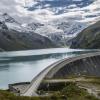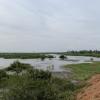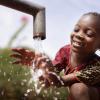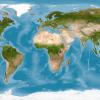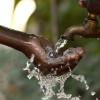
The objective of the WAT Group is to provide the scientific foundation needed for addressing the quest for water security across scales and to help bridge science-policy-practice gaps related to water management by leading global efforts on integrated assessment of water resources and exploring transformation pathways towards a water secure future.
Water plays a central role in all human activities and needs to be managed efficiently and sustainably. The WAT Group pushes the boundary of transdisciplinary water science enabled by the institute’s recognized expertise in systems science approaches, to provide the scientific knowledge needed to address the quest for water security. The group aims to lead global efforts on integrated assessment of water supply and demand and identify solutions options that improve water scarcity, ameliorate water quality, and enhance resilience to extreme events, while at the same time engaging with key stakeholders at different levels to translate science into policy.
The group’s research has informed the development of various widely used models, which will continually be refined and extended to enable application and analysis at policy-relevant spatial scales. The group contributes to several IIASA research themes including biodiversity and ecosystem services, production and consumption, technology and innovation, and governance and institutions, by providing the water resources research expertise required for the development of a systemic approach to resolving sustainability issues.
Models, tools, datasets
Projects
Staff
News
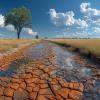
08 July 2024
Efficient water quality management could reduce future water scarcity by half
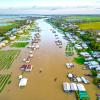
10 June 2024
Analyzing the benefits of transboundary cooperation in the Lancang-Mekong River Basin

28 November 2023
How can we evaluate the quality of global water models?
Events
Focus

17 July 2024
Biodiversity lessons from nature
IIASA researchers Silvia Artuso and Juliette Martin reflect on a recent workshop presented at the Institute as part of the IIASA School Engagement Initiative, during which they introduced students to systems analysis and took them on an adventure to explore the amazing biodiversity of Laxenburg park.
27 June 2024
Supporting sustainable agriculture

Publications
Martin, J. , Kanade, R., Bhadbhade, N., Joy, K.J., Thomas, B.K., Willaarts, B. , & Hanger-Kopp, S. (2024). Review of the food, water and biodiversity nexus in India. Environmental Science & Policy 159 e103826. 10.1016/j.envsci.2024.103826. Willaarts, B.A. , Novais, M.H., González Navarro, J.M., López Lara, G., Morais, M., Zilliox, E., & Peñate Suárez, B. (2024). The governance of the water-energy nexus: Co-produced narratives to take stock and address energy dependencies of the urban water cycle in Atlantic Europe. Environmental Science & Policy 160 e103835. 10.1016/j.envsci.2024.103835. Rohde, M., Albano, C., Huggins, X., Klausmeyer, K., Morton, C., Sharman, A., Zaveri, E., Saito, L., Freed, Z., Howard, J., Job, N., Richter, H., Toderich, K., Rodella, A.-S., Gleeson, T., Huntington, J., Chandanpurkar, H., Purdy, A., Famiglietti, J., Singer, M., Roberts, D., Caylor, K., & Stella, J. (2024). Groundwater-dependent ecosystem map exposes global dryland protection needs. Nature 10.1038/s41586-024-07702-8. (In Press) Weber Salazar, P., Macpherson, E., & Willaarts, B. (2024). Towards durable legal protections for rivers in Chile. Water International 1-24. 10.1080/02508060.2024.2346394. Baccour, S., Goelema, G., Kahil, T. , Albiac Murillo, J.M.S., van Vliet, M.T.H., Zhu, X., & Strokal, M. (2024). Water quality management could halve future water scarcity cost-effectively in the Pearl River Basin. Nature Communications 15 (1) 10.1038/s41467-024-49929-z.

